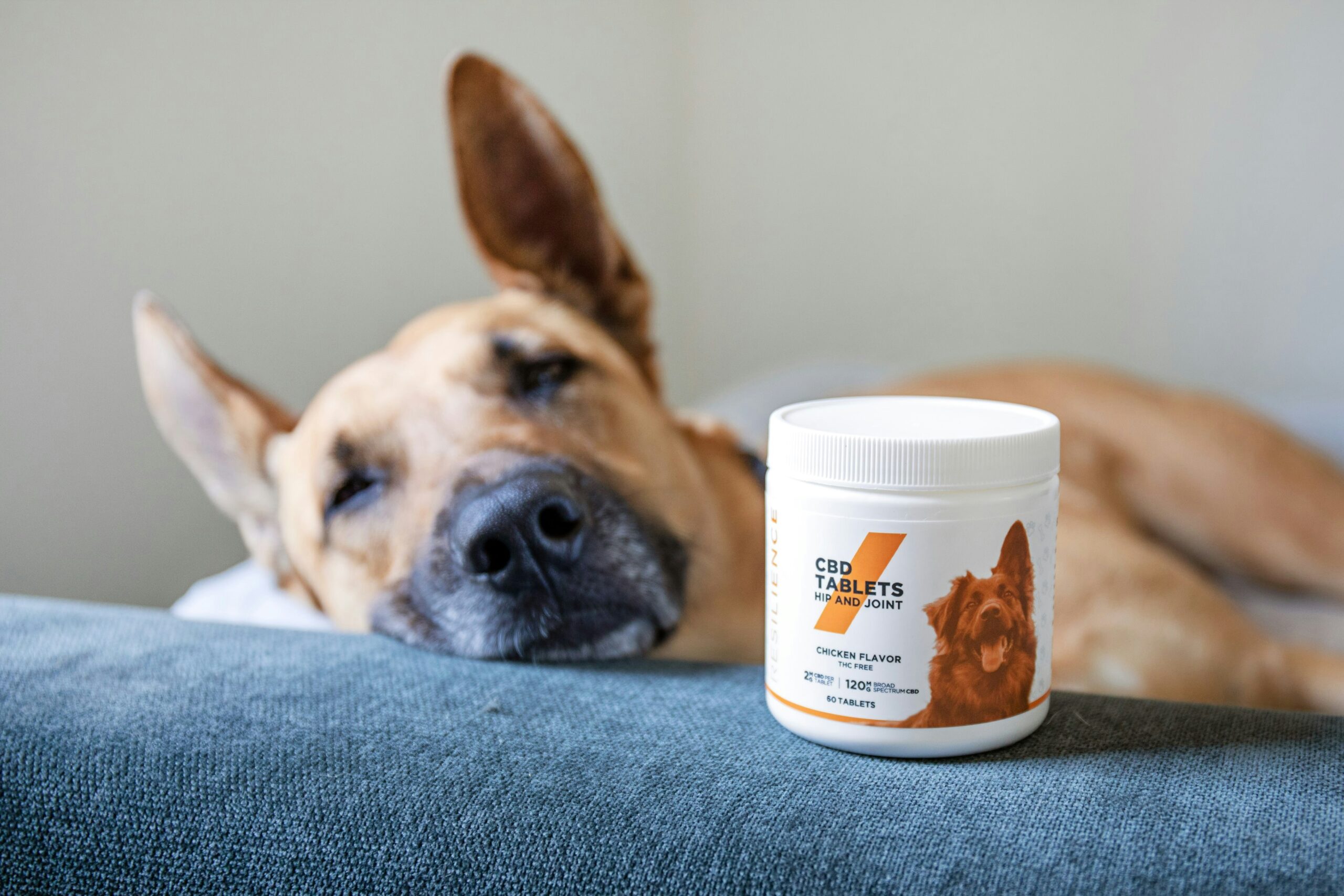Exploring the Canine Benefits of CBD: A Comprehensive Guide to Research and Studies
This article provides an overview of CBD oil for dogs, including its effectiveness for specific health conditions, safety considerations, and the need for further research in veterinary medicine.
Overview of CBD Oil for Dogs
CBD oil, extracted from hemp plants, is now widely recognized for its non-psychoactive nature and minimal THC levels, ensuring the safety of dogs that consume it. Recent research has shed light on the profound impact of CBD on the endocannabinoid system in dogs, revealing its pivotal role in pain modulation and the maintenance of internal balance, known as homeostasis. For instance, CBD interacts with key cannabinoid receptors in dogs, including CB1, CB2, GPR55, and GPR119, triggering a cascade of physiological responses that contribute to the overall well-being of our canine companions.
Moreover, the effectiveness of CBD in managing specific health conditions in dogs has been a subject of ongoing scientific inquiry. For example, studies have shown that CBD’s anti-inflammatory properties make it a valuable tool in alleviating conditions like atopic dermatitis and arthritis in dogs, offering a natural and holistic approach to support their health. This underscores the potential of CBD not only as a symptomatic treatment but also as a therapeutic agent addressing the underlying causes of various health issues in dogs, paving the way for a more comprehensive approach to canine healthcare.
Understanding the Quality of CBD Products for Dogs
When assessing the quality of CBD products for dogs, it is crucial to consider various factors that can influence their safety and effectiveness. Third-party evaluation plays a significant role in ensuring the purity of these products by confirming the absence of contaminants such as heavy metals and pesticides. For instance, a study by Dr. Joseph J. Wakshlag recommends opting for CBD products that are organically cultivated to minimize the risk of exposure to harmful chemicals, thus promoting a purer form of CBD oil for dogs. By choosing products that have undergone organic cultivation, pet owners can prioritize the well-being of their dogs and reduce the likelihood of adverse reactions due to chemical residues.
Moreover, the extraction method used in producing CBD products can also impact their quality and efficacy for dogs. Products extracted through the supercritical carbon dioxide method are highlighted for their ability to maintain the integrity of CBD compounds. This preservation of the compounds ensures that the final products contain a higher concentration of active ingredients, enhancing their potential therapeutic effects when administered to dogs. Therefore, pet owners seeking high-quality CBD products for their canine companions should prioritize those extracted using this advanced method to maximize the benefits their dogs can receive from the CBD oil.
Effectiveness of CBD for Specific Health Conditions in Dogs
Recent studies have shed light on the potential health benefits of CBD for dogs, showcasing its versatility in managing various conditions. For instance, CBD’s anti-inflammatory properties have been found to be beneficial for dogs suffering from atopic dermatitis and arthritis, providing relief by reducing pain and inflammation. One example of CBD’s effectiveness is in alleviating arthritis symptoms in older dogs, where it can improve mobility and overall comfort.
Moreover, research has highlighted CBD’s neuroprotective effects, indicating its potential in reducing pain and inflammation in dogs with a range of health issues. For instance, CBD has shown promise in managing chronic pain in dogs with conditions like hip dysplasia, enhancing their quality of life. Despite these positive findings, the efficacy of CBD for behavioral disorders in dogs has shown mixed results in studies, emphasizing the importance of further exploration into its use in this specific health aspect. By delving deeper into the interaction between CBD and behavioral issues in dogs, researchers aim to establish clearer guidelines for pet owners seeking alternative treatments for their furry companions.
 Safety and Considerations When Using CBD for Dogs
Safety and Considerations When Using CBD for Dogs
When considering using CBD for dogs, it is vital to consult a veterinarian to guarantee the safe administration of the product, taking into account potential drug interactions and the unique health conditions of each dog. For example, some medications metabolized by the liver may be affected by CBD, making it crucial to seek professional advice before starting treatment. Additionally, understanding the optimal dosage is key to avoid adverse effects, and it is recommended to start with a low dose and gradually increase it while monitoring the dog’s response.
Moreover, pet owners should be aware of the bioavailability of CBD formulations, as this can significantly impact the effectiveness of the product in managing health conditions in dogs. For instance, products with higher bioavailability ensure that a larger proportion of the CBD is absorbed by the dog’s body, maximizing its therapeutic benefits. By discussing these factors with a veterinarian, pet owners can make informed decisions about using CBD for their dogs, ensuring the safety and well-being of their furry companions.
Long-Term Effects and Benefits of CBD for Dogs
It is crucial to consider the long-term effects of CBD on dogs to ensure their well-being and safety. Apart from the potential benefits, such as supporting bone health, pet owners should be aware of how CBD may impact liver enzymes in dogs. Understanding the influence of CBD on liver function is vital, as it can affect the metabolism of other medications that the dog might be taking concurrently. By monitoring liver enzymes and consulting with a veterinarian regularly, pet owners can mitigate any potential risks associated with CBD usage.
Moreover, delving into the pharmacokinetics of CBD in dogs unveils the complexities of how the compound is absorbed, distributed, and metabolized in their bodies. Research in this area sheds light on the variability in absorption rates and metabolism among individual dogs, emphasizing the need for tailored dosing regimens for optimal therapeutic effects. For instance, studying the plasma, urine, and feces concentrations of CBD in dogs provides valuable insights into how the compound interacts within their systems over time, aiding in establishing safe and effective dosages for different health conditions. By understanding these pharmacokinetic dynamics, veterinarians and pet owners can better navigate the landscape of CBD treatment for dogs, ensuring the best possible outcomes in managing various health issues.
Future Research and Recommendations
In the realm of CBD for dogs, ensuring the standardization of dosing regimens and implementing stringent quality control measures are imperative steps to guarantee the efficacy and safety of CBD products. For instance, ongoing studies focus on determining the optimal dosage of CBD for dogs based on factors like weight, health condition, and the severity of symptoms, aiming to establish clear guidelines for pet owners and veterinarians alike.
Moreover, continuous research plays a pivotal role in unlocking the full potential of CBD in veterinary medicine. For example, emerging studies delve into the use of CBD for managing complex neurological disorders in dogs, such as epilepsy and cognitive dysfunction syndrome. These investigations aim to provide substantial evidence on the effectiveness of CBD in alleviating symptoms and improving the quality of life for dogs battling these conditions.
Collaboration among veterinary professionals, researchers, and pet owners is essential for driving progress in the field of CBD for dogs. By fostering open communication and sharing insights from clinical experiences, stakeholders can collectively enhance their knowledge of CBD’s therapeutic benefits and better navigate the nuances of incorporating CBD into canine healthcare practices. This collaborative approach paves the way for informed decision-making regarding CBD treatments, ensuring that the well-being of our beloved four-legged friends remains a top priority in the ever-evolving landscape of veterinary care.




 Book Appointment
Book Appointment